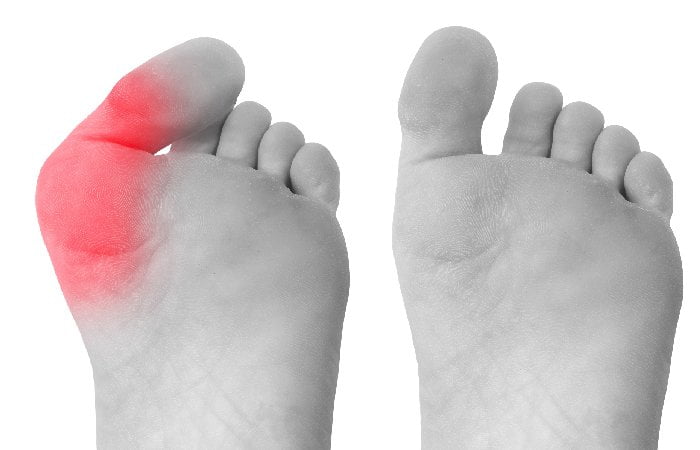
When Is Corrective Foot Surgery Necessary?
Depending on your job or sports activity, you may have a higher risk of a foot injury. If you work in the construction industry or on your feet for most of the day, you might develop foot problems. Similarly, those who do a lot of running, jumping, and other high-impact activities are prone to sports-related foot injuries.
Although not all cases require medical attention, specific foot conditions such as corn, bone spur, bunions, hammertoe, plantar fasciitis, Morton’s neuroma, metatarsal foot injury, tendon, and others may require surgical intervention as a form of treatment.
If you’re worried about how long you’ll be sidelined after foot surgery, you can follow time-tested tips for a smooth recovery to help you get back on your feet in no time.
The following situations typically indicate when corrective foot surgery might be necessary:

Table of Contents
1. Deformity
Foot deformity is a general term that refers to a condition that changes the foot’s shape and structure. The deformity could be painful or harmful when bones and joints are not aligned, or both. Common foot deformities include bunions, hammertoes, claw toes, bone spurs, flatfoot, and high arches.
The problem with these deformities is they worsen over time. Also, conservative treatment won’t correct the problem if the deformity is severe, like a complex foot deformity. At best, it could only provide pain relief. In cases like this, cosmetic foot surgery could be your only recourse.
2. Severe Injury
If you happened to be involved in an accident and sustained a fracture in your foot, you might need surgery. It’s essential to get a scan to know the extent of the injury before medical treatment.
For minor fractures, there’s a chance they could heal on their own. But for severe fractures, you might need corrective surgery to realign your bones and fuse them together. After undergoing corrective surgery, you’ll experience better joint stability and less pain.
3. Chronic Pain
If you’ve been experiencing persistent pain in your foot and other treatments aren’t helping, then corrective surgery may be an option. It can be pretty challenging to live with foot pain, especially if your job requires a lot of walking or traveling. In severe cases, chronic foot pain can prevent you from performing your daily tasks.
Surgery can address the root cause of your foot condition. After the proper surgical procedure, you’d experience pain relief, regain your foot’s functionality, and resume your usual activities.
4. Issues With Function
When your foot condition interferes with the normal function of your foot and conservative treatments don’t seem to help, you may consider having corrective surgery. A precise surgical procedure to repair the affected part of your foot or ankle can restore function and mobility.
5. Non-Surgical Treatment Fails To Work
Physicians generally consider surgery as a last resort in treatment. Usually, they’d try conservative options and less invasive procedures before recommending surgical intervention.
Some foot problems could be effectively treated with spacers, pads, splints, orthotics, shields, and pain medication. However, surgery may be a suitable option for severe conditions that don’t respond to non-surgical treatments.
6. Limited Footwear Choices
Is your foot condition limiting your choice of footwear? If your feet cannot tolerate certain types of footwear, you might have a foot condition that needs to be thoroughly examined by a medical specialist.
Admittedly, some shoes are not suitable for your feet and could cause you painful foot problems. But if you find that your footwear options are severely limited compared to the average person, then it might be a cause for concern. The seemingly minor foot problem might require corrective foot surgery to keep it from getting worse.
In this instance, it’s not just about fashion but the overall condition of your feet.
7. Unpleasant Appearance
Some foot conditions can cause an undesirable appearance, affecting your self-esteem. If the appearance of your feet has bothered you for the longest time, and it has always made you feel self-conscious and insecure around people, then talk to your doctor about correcting the disfigurement with surgery.
But then again, there may be more than meets the eye. So, it would be best to have a specialist conduct a thorough examination and recommend the appropriate treatment.
Conclusion
Foot problems are not merely a nuisance but a health concern that needs to be immediately addressed to keep it from getting any worse. So, if you happen to have any of the conditions mentioned above, it might be best to consider corrective surgery to relieve pain, restore function, and improve mobility.


